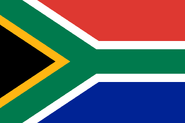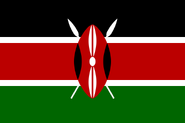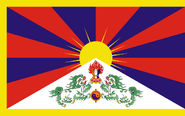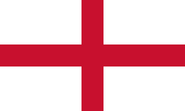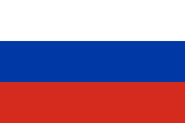Historical[]
Napoleon's victory in the Napoleonic Wars changes the balance of power not only in Europe, but the whole world. With no nation daring to attempt to contain France, Napoleon's dreams of controlling most of Europe can finally be realized. France replaces a battered and bruised Britain as the main world power, enabling a golden age of expansion and growth known as Pax Francia. French ideals of liberty and republicanism takes a greater hold on many countries, allowing many countries to adopt the French system of government. Without the economic lag and political instability, the French colonial empire is way larger than its OTL version. Other effects from a Napoleonic victory include a larger United States, a non-Communist, yet more liberal Russia, Communist governments being non-existent, a different series of World Wars (known as Great Wars in this TL), a different Cold War, a different Industrial Revolution, as well as a different contemporary era.
Napoleonic Wars[]
With the marriage of Joseph of France and Luisa of Spain, the marriage seals the end fate of the Napoleonic Wars. With this, there is no Peninsular War to weigh down the French military. And with that, the French score greater victories in the War of the Fifth Coalition, with due to the new Franco-Spanish union, becomes the Napoleonic Wars' final chapter.
The whole goal for the Fifth Coalition is now different: disband the Franco-Spanish Union. However, this is not successful as eventually, it would seal the fate of three countries: Austria, Prussia, and Britain. Austria's defeat within its exterior force to to its knees, while Prussia loses the province of Brandenburg to France, but even worse, Britain loses part of its colonial empire (its Dutch-held possessions with the exception fo South Africa).
Despite Napoleon's impressive victory, it only causes Russia to fear France even more. To prevent another war, Napoleon establishes the St Petersburg Accords, which eases tensions between the two nations.
With the defeat of the Fifth Coalition and Russia's easing tensions with France, the Napoleonic Wars ends here with France as the victor.
Post-War Europe[]
With Napoleon victorious in the Napoleonic Wars, the post-war effects would make the balance of Europe unrecognizable compared to OTL. There is no Vienna Congress, and the only major redrawing of Europe was done by the French. In this period, most of Europe was under the mercy of France, which would remain so for a very long time. The French are the most powerful country in Europe, led by the magnificent Napoleon.
With the Continental System surviving with Napoleon's dream, Britain has lost all economic, political, and military influence in Europe (except for Sweden and Prussia). During the Scandinavian War, Sweden and Prussia have been both eradicated, leaving their territories up at the hands of Denmark-Norway (Sweden), the Confederation of the Rhine (Southern Prussia), Poland (Northern Prussia), and Russia (Finland).
Without Napoleon's defeat, Poland survives, though due to the second POD, it functions as an independent, sovereign banks. Russia and Austria-Hungary enacted reforms since the influence and legacy of the French Revolution was carried on by Napoleon.
The Confederation of the Rhine and Italy became officially unified states. The Confederation of the Rhine contained all French-controlled German land (1821) while Italy had all French-controlled Italian land (1817). Thus the wars of unification for their respective countries that occurred in OTL never occurred.
During the Industrial Revolution, France, not Britain due to its war-weariness, leads Europe in this period. And because of this, France becomes the workshop of the world. And thanks to the Continental System, they are able to have easy access to European markets.
In the Balkans, the independence of the region was more quicker than OTL. This was due to the First Turkish War (1820-1823), as part of one of the terms of the Treaty of Constantinople. The nations of Bosnia and Herzegovina, Serbia, Greece, Albania, Macedonia, Bulgaria and Romania are all proclaimed in independence.
Russia suffered a huge peasant revolt known as the Russian Revolution. The commoners aimed for liberal rights and more social reforms. This bloody period ended when Czar Constainte enacted the needed reforms, allowing a more liberal Russia, similar to France's structure.
Pax Francia[]
Pax Francia, Latin for French Peace, was an era that still continues to this day. It is the ATL version of Pax Britannia, yet never existed due to Britain's defeat at the hands of France. During this period, France became a major economic, political, and military superpower.
With the Continental System surviving along with Napoleon's dream, France dominates most of the affairs of Europe. Serving as the workshop of the world, France became a beacon of industrial technology and invention. Napoleon's power over Europe would rival ancient Rome in all terms.
Despite a humiliating defeat at the American continents during the War of Spanish-American Independence, France led the world in the second Age of Colonialism. During the 1810's they established the North African kingdoms of Algeria, Morocco and Tunisia, giving them the first major foothold in Africa and a major coastline of the Western Mediterranean.
Eventually, following the First and Second Turkish Wars, France established absolute control over North Africa and a foothold in Yemen. Outside these wars, other colonies in Mauritania, Guinea, Nigeria, and other places in West Africa allowed France to control an economic monopoly in Africa.
France begin to be a par with Britain as a main maritime power. Its holdings in the East Indies, Philippines, Djibouti, and Madagascar allowed naval bases for the expanding naval and trading fleets. France soon became a major colonial power in Asia after gaining Indochina and Southern China. It gained Japan (1829) and Thailand (1841) as major allies.
France gained several islands in the Pacific, including eastern Polynesia, Micronesia, Western Australia (Lost to Britain after Great War I), North New Zealand (Also lost to Britain after Great War I), and many others. Eventually, France alongside Britain (and eventually Greece and America) as one of the major commanders of the big ocean.
France was a major contributor to the modern world's culture, science, and technology. The French military's desire for the best technology allowed military engineers to perfect the best weapons. Because of this, some military inventions (such as tanks and machine guns) were invented earlier than OTL.
Eventually, France underwent the three Great Wars. Despite the destruction brought upon by each one, France emerged as a victor from each one (the first one was considered an "win-lose". After the second and third Great Wars, France's international power and influence increased.
Colonialism[]
Like OTL, the stage of colonialism shined in Africa and Asia. Since the War of Spanish-American Independence and the Monroe Doctrine, Europe has looked elsewhere to expand their colonial empires. With Britain battered and bruised since the Napoleonic Wars, France is the main head of the list of colonizers. In 1818, France established Algeria as a protectorate. This was followed by Morocco and Tunisia in 1819.
Great Wars[]
Cold War[]
Contemporary Era[]
Culture[]
Because of greater Western influence, especially French, there has been a new type of culture than doesn't exist in OTL known as "world culture". World culture is a common culture that includes elements from other cultures that are widely popular. Examples of some pieces of world culture include American pop music, French fashion, Chinese food, Indian films, and Russian sports. World culture first began in the 1980's during the rise of contemporary technology, including video games and the internet. This allowed the world to be even more connected. Because of the flow of foreign cultural ideas and beliefs, this type of cultural elements become popular to a nation's people. It is most a secular culture, as even Western holidays don't have too much religious tradition in other non-western countries.
The world is also more liberal than OTL, with gender, racial, and income equality more often, progressivism widely more used, and rights for gays, lesbians, bisexual, and transgender people also granted. This was due to the legacy of the Napoleonic Code and the French Revolution, as European empires do not look down on non-white as much as they did (for example, Russia ended discrimination on Jews, Britain tends to treat the Indians with more respect, Americans comprise with pro-American Mexican loyalists, etc.) Though all have been discriminated by religion, though, which yet ceased since the 1930's. Great War III also had smeared the power of racism due to the Holocaust, when Slavs, Frenchmen, Belgians, and Dutch (by the Germans, Hungarians, and the Italians), Chinese, Mongolians, Russians, and Americans (by the Japanese), and the Burmese, Aboriginals, Maoris, and black South Africans (by the English) were massacred in countless lives.
Due to the greater power and influence of France, French, not English is the second-most spoken language after Chinese (English is third). Also, French culture is widely known and popular across most of the world. Food, drink, fashion, sports and hobbies, art, literature, media, and architecture are common in world culture. It did suffer a cutback during the Cold War, as the anti-French side (the Washington Pact) have boycotted French culture. The Napoleonic Code, the nearly flaw-less series of laws for a well-refined government, and the military code from Napoleon I, have been used by more countries than OTL.
Without the OTL Cold War or the rise of Russian Communism, coupled with a more liberal, democratic Russia, Russian culture is more accepted and more commonly found. With a Russophile-state in North America (known as Alaska), it provides a base for the spreading of Russian culture to other parts of the Western world. Also, Russian sports are very popular, as its country is best known for its heavyweight champions.
Political[]
Bonapartism: Bonapartism is a French political party that supports the Bonapartes in power and embraces Napoleon I's ideology (aka the Napoleonic Code). Without Napoleon I's downfall, this party as well as the ideology with it has much more greater power in France. Although the single-part state system was ended in 1882, it changed little on the party's control of the country.
Progressivism: Progressivism is an ideology that endorses reforms for society, economics, and politics. It is greatly opposes conservatism and reactionary ideologies and is mostly a left-wing ideology. Like OTL, it for a short time, was a major political party in the United States. However, unlike OTL, during the Great Depression, it makes a great comeback, allowing them to gain major support amongst the people. Progressivism, to this day, remains a major political party in the United States.
Liberalism: Liberalism is an ideology originating from the ideas of equality and liberty. Liberalism can have a variety of ideologies, but constitutionalism, liberal democracy, free and fair elections, human rights, and free exercise of religion can be something they can all agree on. The world is more liberal than OTL due to the legacy of the French Revolution, the rise of American progressivism, and the horrors of Mosleism. It is the basis for most governments across the world.
National Socialism: National socialism is an ultra-nationalistic ideology that combines socialism and nationalism together. Unlike OTL, its origins are in England, not Germany. Named after its founder, Mosleism is a common name for national socialism (natso is other name). Like its OTL counterpart, it was responsible for the most destructive war in history. Due its destructive nature, the ideology is condemned and its parties banned across the world.
Socialism: Socialism aims for social ownership, cooperative enterprises, and control means of productions. Yet there are many different interpretations of socialism and have different ideologies (Communism is a radical version of socialism). Just like OTL, it grew out of the hardships and despair from the Industrial Revolution as a way to improve social living. Unlike communism, socialism does have a better image, as reforms have been implemented inspired from socialism. Scandinavia is known for its nearly flawless Nordic System, a system of a mixed market economy run by a universal welfare system.
Communism: Communism expresses desire for a state-controlled economy, a class-less society, and the end of capitalism, which is seen as "corrupt". It is a more radical version of socialism. In this TL, however, they have little power in the world due to the failure of the four Bolshevik Revolutions and the 1848 Revolution. Due to their aggressiveness, calls for destruction of law and order, and destruction it caused, it is also banned across the world.
Political Conservatism: Political conservatism does not embrace major reform and often stick to the existing system. However, due to the rise of progressivism during the 1900's and its eventual revival during the Great Depression, coupled with the legacy of the French Revolution, caused a drop of support for conservative parties in the United States and other countries.
Theocracy: Theocracy is rule of the nation by religious law. Theocracies are slightly more common than OTL. These include Ethiosomalia, Tibet, and Perso-Arabia. Unlike OTL, way less Muslims support a theocracy due to the effects of Islamic modernism. Theocracies tend to be less radical, yet have a deep national pride on their religion.
Dictatorships: Dictatorships are the opposite of democracies: the government has lots of power, people have little say, and leader chooses what he wants with little opposition. The TL Cold War is not democracy vs dictatorship since France does have a degree of democracy. Dictatorships are not as common as OTL and only exist in technocratic countries.
Democracies: Democracies are the opposite of dictatorships: people have certain unalienable rights and a right to say in the government, governmental power is limited, and the leader can only do if the government approves it. Democracies are the most common form of government in the world and have a greater percentage than OTL.
Monarchies: Monarchic governments are more common in Europe with only England and Russia the only countries without monarchies. Due to French influence and the failure of communism, monarchies have managed to hold on to their power. But due to the legacy of the French revolution and the effects of the Napoleonic Code worldwide, all absolute monarchies in Europe have ceased to exit (Perso-Arabia has the only government of this kind)..
Scientific and Technological[]
Economical[]
Religious[]
Religion has a greater influence on people's lives than OTL. Without the rise of Communism in OTL, atheism is not rampant across the world. Buddhism and Chinese folk religions have more members without Chinese Communism. Christianity is the largest religion like OTL, but even larger than before. Without European and Russian Communism and the French rule over its colonies in Africa and Asia, Christianity has more followers. Islam is smaller than OTL due to widespread persecution and discrimination. And while Islamic fundamentalism still exists, Islamic modernism is widely more accepted my Muslims than OTL. Roman Catholicism, due to French rule over most of Africa and high influence in Asia, is much larger than OTL while Orthodox is the same without Russian or Eastern European Communism. Native religions have become rarer due to increase Christian missionary work in their homelands by their colonizers.
Christianity[]
Christianity, unlike OTL, has way more followers in this TL. This is contributed by French settlement over most of the non-Christian world and the increased hostility by Christian and Muslim nations. Among the Christian sects, Roman Catholicism, through French colonialism, is so far the largest of them. In this TL, it remains the largest religion for Africa and Southeast Asia, and a major one in the Middle East and the Pacific.
Without the rise of Communism, Eastern Europe and Russia do not see a drop in religion, Because of this, Eastern Orthodox has more followers, especially in Russian Central Asia and the Caucasus.
Islam[]
Islam is smaller than OTL due to Christian encroachment of its affiliates through colonialism, especially from the Russians and French. In some former Muslim areas, Christianity out-places Islam as the majority religion. Amongst them are West Africa, North Africa, Southern Arabia, and the East Indies. Muslim Americans, however, are more common than OTL and have 15 million followers, having the largest Muslim community in the Western world.
A new, modern sect of Islam, known as Islamic modernism is not as radical as its traditional counterpart and does not teach them violence. As a result, anti-Western feeling is not very high amongst Muslims in traditional areas. Yet this does not mean Islamic fundamentalism is uncommon. Perso-Arabia and Afghanistan are those kinds of countries. Terrorism still exists, though mostly exists at Ethiosmolaia and Palestine.
Other Religions[]
A majority of African native religions have seen a greater plunge in followers unlike OTL due to French colonialism. The only places where they still have the majority are small areas of land where native communities exist. Chinese folk religions have more followers without Chinese Communism, though Buddhism remains a majority. As a part of the legacy of Mughal rule in Afghanistan, a Hindu minority exists in the south. Judaism has more followers without the Holocaust directing at them and is more common in the Middle East and Europe.
Protestant Christian missionaries in the Asian Union has caused a large minority of people to be affiliated by Christianity. In Southern China, Christianity is the dominant religion, though Catholicism has plunged due to the Cold War as many switches to Protestantism or other religions.
Atheism/Agnosticism/Universalism[]
Without the rise of Communism, atheism is not as rampant as it used to be. As a result, it also causes reduced followers for agnosticism and universalism. The ideas of evolution and the Big Bang still exist, but are not as much accepted in Europe or other countries unlike OTL. Religious organizations and missionaries have more influence in places like Russia, East, and Southeast Asia.
Health[]
Territorial[]
Africa[]
A vast majority of Africa is part of the French Empire to this day. Only three independent nations, Kenya, Ethiosomalia, and South Africa make up non-French Africa. Before the French colonization of Algeria 1818, a vast majority of Africa consisted of indigenous tribes or different civilizations. Since 1818, the French have vast control over Africa with little opposition.
Two other nations, Greece, and Britain, have also controlled parts of Africa. Before Great War I, Britain controlled Angola, Namibia, South Africa, Mozambique, Tanzania, and Kenya. After Great War I, it lost Tanzania to France and forced to recognize Kenya as an independent nation. After Great War II, Mozambique was given to Greece. After Great War III, the region became independent as the nation of South Africa.
Greece, with the aid of France, has control over the Ethiopian and Somalian regions (with Djibouti an exception). During the 1840's-1850's, it begin settling on the Horn of Africa and the Somalian region. After the Ethiopian War's end in 1872, it gained the country. After Great War II, Greece acquired Mozambique from Britain (an offer to buy it in 1888 has been rejected). After Great War III, however, post-war economic difficulties sparked rebellions in Ethiosomalia, forcing the country to grant it independence. To raise money, it sold Mozambique to South Africa.
Current Nations[]
- Kenya
- Ethiosomalia
- South Africa
Flags[]
Maps[]
Asia[]
In this TL, the history of Asia has been rapidly altered with events nearly unrecognizable. Just like OTL, China was the "sick man of Asia" due to lack of modernization. However, it loss even more territory and in during Great War III, the state was temporarily obliterated by the Japanese. Like OTL, Britain held India, yet it loss it during the Sepoy Mutiny, which revived the Mughal Empire. France held more land than the other European colonial competitors. Other than Indochina, it held the East Indies, the Philippines, South China (until the end of Great War III), Burma, Thailand, Malaya, Borneo, Southern Arabia (Oman, Yemen, UAE, Qatar, Bahrain, Kuwait), and Palestine (until 1945).
Russia's Asia boundaries are nearly unchanged, yet the two differences are that it holds Anatolia (a majority of it), Kurdistan, Iranian Azerbaijan, and Eastern Turkestan. Mongolia is an independent country in this TL, but also includes the region of Outer Mongolia. Tibet is an independent country, but is the size of the OTL province and also includes Nepal and Bhutan. The Asian Union is a combination of China, Korea and Japan.
India is considerably larger than OTL, as it has included lands what are now Pakistan and Bangladesh. At its height, it included Afghanistan, all of Pakistan, and Iranian Baluchistan. After Great War III, an independent Islamic kingdom of Afghanistan mainly formed out of the country's western Muslim lands. Ceylon and Maldives are owned by Greece and remain one of its most valuable possessions to this day.
Another Muslim nation, known as Perso-Arabia, comprises of Iran (minus Baluchistan, Kurdistan, and Azerbaijan), Iraq (minus Kurdistan), and Arabia (OTL Saudi Arabia). Palestine isn't a Jewish state unlike OTL, but is also a Muslim and Christian state. It covers the OTL territories of Israel, Jordan, Syria, West Bank, and the Gaza Strip.
Nations[]
- Asian Union
- Perso-Arabia
- Mongolia
- India
- Palestine
- Tibet
- Afghanistan
Flags[]
Maps[]
Americas[]
In this TL, a French-backed US achieving victory over the British after the War of 1812 gained Canada, the British Greater Antilles, Belize and the Mosquito Coast, something they didn't do in OTL. Because of this achievement, the country is way bigger considered in this time frame. This eventually leads to greater migrations to the western frontier. However, because of British-loyalists resist American rule, they do establish independent republics out their. Eventually, they are annexed by the United States after years of conflict. Quebec, in the meantime, gains independence in 1816 after a referendum, yet it does little effect on America. Russia and America have had hit a crisis over the Oregon Territory in 1818, yet they agree to divide it themselves by the 49th Parallel just like OTL. Eventually, in the 1840's, France agrees to sell Texas to the United States, establishing the present-day boundaries of the United States in the continent.
Alaska is bigger than OTL, mostly due to the fact Russia regained their claim of the Oregon Territory. However, they only gained the upper half of it since America gained the lower half. The area still has its importance, but nearly ran out until the discovery of gold in the 1860's which restored the colony's economy. Alaska was invaded by Japan in Great War III, yet was able to recover from the disaster with American aid. Eventually, the colony gains independence after a referendum in 1968, it gains independence. Unlike OTL, Americans are not the main settlers and are ethnic Russians with Russian-Native American mixed and Native American peoples.
South America also has seen border changes. Unlike OTL, the countries in South America did not fracture since unity was vital due to French control in Mexico and Brazil. Eventually, during the South American War, Gran Colombia and Peru are annexed by France, leaving Argentina the only independent South American country.
France has a vast control over the American continents. From Mexico (the borders of the First Mexican Empire without Texas), to Gran Colombia (which includes the boundaries in its time) to Peru (OTL borders) to Brazil (and also OTL borders), a vast strip is French-controlled. The Lesser Antilles are also controlled by France as well as Puerto Rico, Hispaniola, and Cuba.
Argentina controls the whole southern half of the South American continent. It holds the OTL countries of Chile, Uruguay, Bolivia, Paraguay, and the OTL country itself.
Current Nations[]
- United States
- Quebec
- Alaska
- Argentina
Flags[]
Maps[]
Oceania[]
Antarctica[]
Europe[]
With French victory in the Napoleonic Wars, the French are undisputed masters of Europe. Without Napoleon's defeat, Poland manages to survive without being annexed, though it is no longer a French client state. Spain, through marriage, is now unified as a semi-autonomous duchy with France. Portugal, has some of its land annexed by Spain and is split into Alentejo and a rump Portugal state. The Confederation of the Rhine is not disbanded, allowing earlier German reunification (which was relater renamed Germany). Prussia and Sweden are diminished after the Scandinavian War while Denmark-Norway becomes Scandinavia after annexing Sweden during the war. Prussia was split into two, the southern half went to Germany and the northern half went to Poland. Austria is reformed into Austria-Hungary due to the effects of the French Revolution coupled with ethnic nationalism.
After the First Turkish War, the Balkans became independent from the Ottomans into separate nations: Bosnia, Serbia, Albania, Greece, Macedonia, Bulgaria, and Romania. Eventually, Yugoslavia was established in 1852 by all the Slavic nations in the region. After Great War I, Austria-Hungary was fractured: the German parts went to Germany, Romanian parts went to Romania, Hungary became independent, and the Slavic areas formed Czechoslovakia. Also, Ireland became independent, After Great War II, the two Portuguese states were annexed by Spain, Ireland annexed Britain's Celtic provinces, Estonia was passed to Sweden, and England was reduced to a rump state. In 1957, Zapadslavia is formed out of the Western Slavic countries and in 1964, Balkania is formed out of the Balkan countries.
During the Cold War, the French Zone comprised of Western Europe while Russia and America held Eastern Europe. England was divided anti-French north and south while London had a similar fate as well. In 1991, the two countries were finally reunited.
Nations[]
- France
- England
- Celtica
- Russia
- Scandinavia
- Balkania
- Hungary
- Zapadslavia

